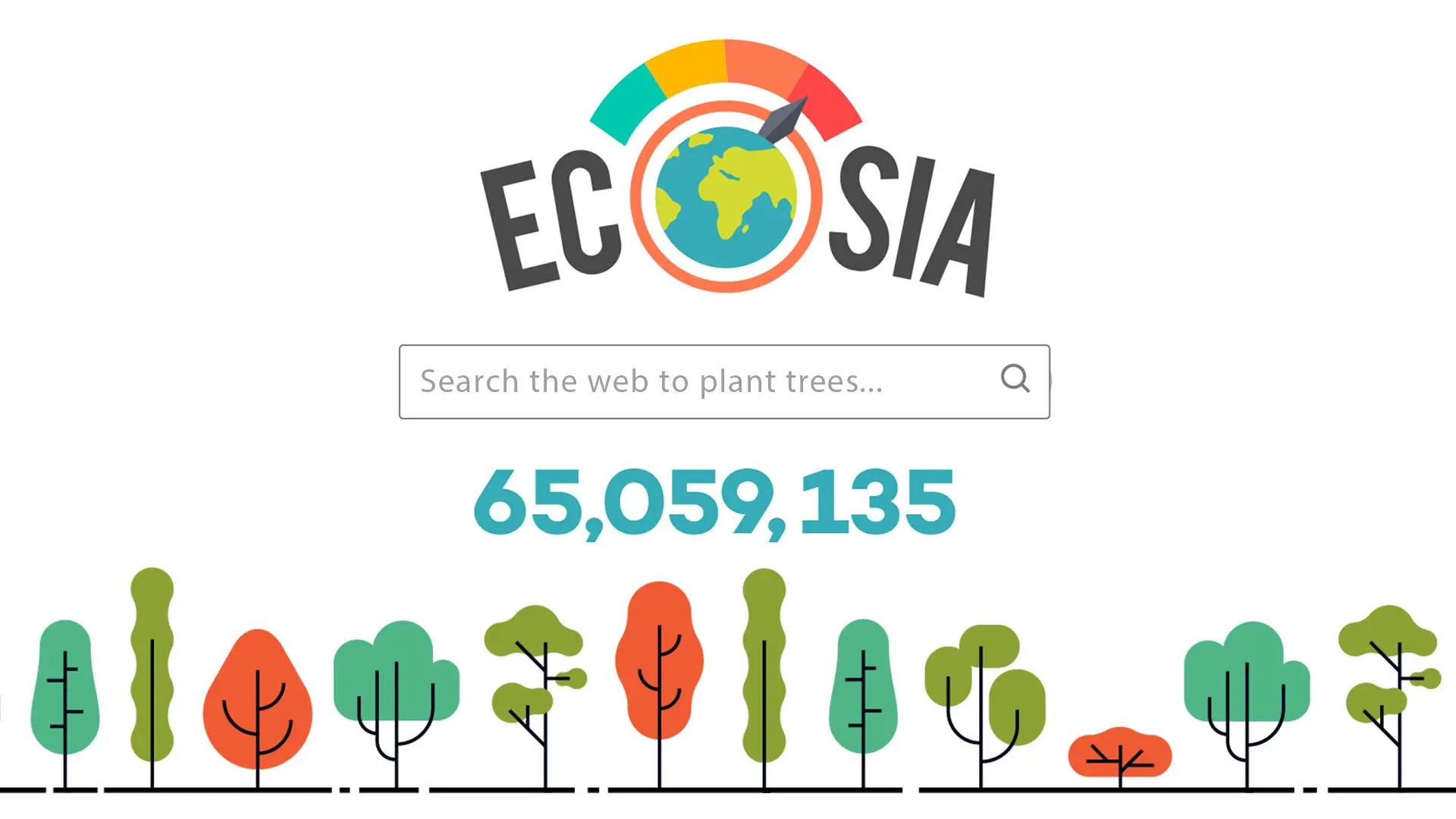Many search engines have come and gone throughout the years, but their contributions to the search engine field are significant. They paved the door for innovation and spawned a new wave of search engines, including the giant Google. The good news is that several search engines exist, each with its own set of features and strengths. Whether you want region-specific results or a global search experience, there are options for everyone.
What’s the best thing, then? These search engines still provide the same search features. Thus, you don’t need to be concerned about picking up new skills. However, bear in mind that search engine popularity is subject to shift over time. Thus, it’s critical to stay up-to-date with current developments and investigate search engines outside of Google. Keep checking back as we continue to add the most well-liked search engines and their distinctive features to this site. Who knows? You can discover a different preferred search engine that better suits your requirements and tastes!
Also, read: Top Ten Reasons to Join Stevens Applied Artificial Intelligence Course
What is a search engine?
Search engines are sophisticated software systems designed to help you find relevant information on the internet. They work by indexing vast web pages and then retrieving and displaying results based on user queries or search terms.
Search engines use algorithms to analyze and rank web pages according to their relevance to the audience’s query. These algorithms consider factors like keywords, website authority, relevance, and user engagement metrics to determine the most appropriate results.
When a user enters a search query into a search engine, the engine scans its index to find matching web pages and then presents them in a list format, usually with the most relevant results appearing at the top. The user can then click on the links provided to access the desired information.
A search engine keeps exploring different web pages available on the internet and gathers information about them. When a user searches for a query, based on the search engine’s algorithm and ranking system, it displays different results based on the relevance of the query.
Moreover, not every search engine is the same, instead, there are different types of search engines available.
- Crawler-based search engines: leverage a crawler or a bot to crawl over the internet to look for new information and content to be included in the relevant search results.
- Human-powered directories: also referred to as open directories and work when a website description is being offered by human input along with the category for the website.
- Hybrid search engines: leverage crawling, indexing, and manual listing to gather new information and websites to be included in search results.
Also, read: Top 10 AI Myths You Should Know
Beyond Google: Top 10 Search Engines In The World (2024)
In today’s information age, navigating the vast digital sea requires a trustworthy guide—a search engine. These powerful tools help us find the information we need, from everyday queries to in-depth research. But with a multitude of options available, which search engine will reign supreme in 2024? This guide dives into the top 10 search engines in the world, exploring their strengths, functionalities, and unique features. Whether you’re a privacy-conscious user, a visual learner, or simply seeking the most comprehensive results, we’ll help you find the perfect search engine to meet your needs.
1. Google
Google remains the undisputed champion of the search engine world in 2024, boasting a staggering market share of over 90%. Its sophisticated algorithms crawl and index an enormous amount of web data, providing users with the most relevant and up-to-date search results imaginable. Beyond simple text searches, Google excels in image recognition, voice search, and specialized searches for news, maps, and scholarly articles.

While some raise concerns about user privacy, Google offers various tools and settings to manage your data and personalize your search experience. Whether you’re a casual web surfer or a seasoned researcher, Google’s comprehensive search capabilities, constant innovation, and user-friendly interface solidify its position as the go-to search engine for billions of users worldwide.
Also, read: Top 10 Robotic Applications: Exploring the Ten Best Implementations of Soft Robotics
2. Microsoft Bing
While Google holds the undisputed crown in the search engine realm, Microsoft Bing remains a strong contender with a global market share of around 3%. Bing offers a user-friendly interface with a focus on visual search, allowing you to search using images or even by drawing what you’re looking for. It integrates seamlessly with other Microsoft products like Office 365, and its rewards program incentivizes users with points redeemable for gift cards or Microsoft purchases.

Bing has also made strides in artificial intelligence, incorporating a “Copilot” feature that uses AI to understand your search intent and provide comprehensive, summarized answers directly on the search results page. This focus on user experience and innovative features makes Bing a compelling choice for those seeking an alternative to Google, particularly for visual learners or those who value integration with Microsoft products.
3. Yahoo
Yahoo, a household name since the early days of the internet, will remain a contender in the world of search engines in 2024. While not the dominant force it once was, Yahoo still offers a user-friendly search experience alongside a range of other popular services. Beyond search, Yahoo Mail boasts a massive 1TB of free storage, making it a go-to option for users seeking ample email space.

Additionally, Yahoo continues to be a leader in news aggregation, with its homepage featuring curated headlines and stories across various topics. While its search engine technology may not compete directly with Google, Yahoo remains a valuable resource for those seeking a comprehensive online experience, encompassing search, email, and news.
Also, read: Top Ten Deep Learning Techniques for Cutting-Edge AI Applications
4. Baidu
While Google dominates the global search scene, Baidu reigns supreme within China’s borders. Founded in 2000, Baidu boasts a user base exceeding one billion and offers a comprehensive search experience tailored to the Chinese language and market. Similar to Google, Baidu provides searches for webpages, images, videos, and news. Beyond basic search, Baidu integrates features like its own mapping service, Baidu Maps, and Baidu Knows, a vast community question-and-answer platform. However, due to language barriers and government regulations, Baidu’s reach remains largely confined to China.

Furthermore, Baidu heavily invests in artificial intelligence (AI) research, incorporating it into its search algorithms and developing AI-powered products like its voice assistant, DuerOS. This focus on AI positions Baidu as a leader in China’s technological landscape, ensuring its continued dominance in the world’s most populous nation.
5. Yandex
Yandex, hailing from Russia, claims the number-five spot among global search engines. Founded in 1997, it boasts the largest market share of any European search engine, reigning supreme in Russia, Kazakhstan, and Belarus. Beyond its core search function, Yandex offers a vast ecosystem of services, including maps, navigation, and ride-hailing. Taxi, online shopping, and even its web browser.

This comprehensive approach caters to users seeking a one-stop shop for their digital needs. While primarily serving Cyrillic-speaking audiences, Yandex has expanded its reach, offering interfaces in several languages. However, its dominance lies within the former Soviet Union, where it remains a cultural touchstone and a powerful online force.
Also, read: Top 10 Tips and Tricks to Master Google Cloud TensorFlow
6. DuckDuckGo
DuckDuckGo stands out in the search engine world for its unwavering commitment to user privacy. Unlike giants like Google, DuckDuckGo doesn’t track your searches or browsing history, and it actively blocks third-party trackers by default. This means you can search freely without worrying about your online activity being monitored or used for targeted advertising. While search results might not be quite as personalized as what Google offers, DuckDuckGo prioritizes user anonymity and aims to deliver unbiased results based on keywords.

They source information from various search engines and aim to provide a well-rounded view without tailoring results to your past searches. This makes DuckDuckGo a great choice for users who value privacy and want control over their online footprint. Additionally, DuckDuckGo offers features like built-in bang searches for quick access to specific websites and integrates seamlessly with privacy-focused browsers for a truly anonymous online experience.
7. Ask.com
Ask.com, formerly known as AskJeeves, stands out in the search engine landscape for its unique question-and-answer format. Launched in 1996, it aimed to provide answers in natural language, mimicking how you’d ask a question to a helpful butler (inspired by Jeeves from P. G. Wodehouse novels). While the “Jeeves” branding is gone, Ask.com continues to offer features like math solvers, dictionary definitions, and unit conversions alongside traditional keyword searches.

This makes it a valuable tool for students or anyone seeking quick answers to factual queries. Though not as dominant as Google in terms of overall search volume, Ask.com remains a popular choice for users who prefer a more interactive and question-oriented search experience.
Also, read: Top 10 most popular programming languages
8. Naver
Naver stands out as the undisputed leader in the South Korean search engine market. Founded in 1999, it was the first Korean web portal to develop its own search engine. Pioneering features like “comprehensive search,” which aggregates results from various categories like news, blogs, and images on a single page, set Naver apart. Beyond search, Naver has transformed into a comprehensive online platform.

It offers email, maps, e-commerce, social media features, and even a popular webcomic platform called Naver Webtoon, which has fueled the global rise of webtoons. With its innovative approach and focus on user-generated content, Naver has become an essential part of everyday life for millions of South Koreans.
9. AOL
AOL, a veteran of the internet world, holds the number 9 spot on our list. Founded in 1985, AOL was a pioneer in bringing the internet to everyday homes in the US. They’re best known for their dial-up access, which introduced the iconic “You’ve Got Mail!” notification for email and their instant messaging service, AIM. While AOL’s user base has shrunk considerably as broadband internet became the norm, they’ve adapted by offering a web portal with news, weather, and email services.

While not the powerhouse it once was, AOL remains a familiar name for many and continues to cater to a loyal user base, particularly those who appreciate a simpler and more traditional online experience.
Also, read: Top 10 Quantitative Trading Strategies That Work in 2024
10. Ecosia
Ecosia stands out from the crowd in the world of search engines by putting the environment first. Founded in 2009, this German-based search engine uses advertising revenue to fund tree-planting initiatives around the globe. With over 200 million trees planted in 35+ countries, Ecosia boasts a significant ecological impact. They focus on reforestation projects that combat desertification, protect endangered species, and empower local communities. But Ecosia isn’t just about planting trees; it prioritizes user privacy.

Unlike some search engines, Ecosia doesn’t track your searches or sell your data to advertisers. They even power their searches with renewable energy produced by their solar panels, making them a carbon-negative operation. While Ecosia might not offer all the bells and whistles of some competitors, it provides a solid search experience with the added benefit of environmental responsibility. So, if you’re looking for a search engine that lets you browse guilt-free and make a positive impact with every search, Ecosia is a compelling option.
FAQs about Search Engines In The World
Q. Is Google still the king of search?
Absolutely! Google will remain the world’s dominant search engine in 2024, holding over 90% of the market share.
Also, read: Top 10 Advanced Robots in the World
Q. What are some privacy-focused alternatives to Google?
DuckDuckGo is a popular choice for users concerned about online privacy. It doesn’t track your searches and aims to provide unbiased results.
Q. Is Bing any good?
Bing, Microsoft’s search engine, comes in second with around 3% market share. It offers features like visual search and rewards programs that some users prefer.
Q. What’s the deal with Baidu?
Baidu is the leading search engine in China, with features and functionalities tailored for the Chinese market. It’s not widely used outside of China due to language barriers and regulations.
Q. What search engine is best for finding specific answers?
Ask.com focuses on a question-and-answer format, which can be helpful for research or getting quick answers to factual queries.
Also, read: Top 10 Scientific Breakthroughs of the Decade
Q. Are there search engines that help the environment?
Ecosia is a unique search engine that uses its ad revenue to plant trees. Eco-conscious users might prefer it for a guilt-free search experience.
Q. Will there be a new challenger to Google’s dominance?
The search engine landscape is constantly evolving. Keep an eye out for innovative features and privacy-focused options that could disrupt the market in the future.
Q. How can I choose the right search engine for me?
Consider your priorities! If you value privacy, DuckDuckGo is a great option. If you need specific features like image search, explore Bing or other options.
Q. Do I need to stick to just one search engine?
Not at all! Different search engines excel in different areas. You can use Google for general searches, DuckDuckGo for privacy-focused ones, and Yandex for research in Eastern Europe.
Q. Where can I learn more about these search engines?
Many tech blogs and websites offer reviews and comparisons of popular search engines. You can also visit the official websites of each search engine to explore their features and functionalities.
Conclusion: The Final Words on Top 10 Search Engines in the World (2024)
In the dynamic landscape of digital information, search engines have emerged as indispensable tools for navigating the vast expanse of the internet. From the early days of simple keyword searches to the sophisticated algorithms of today, search engines have evolved to provide users with increasingly accurate and relevant results. While Google has long dominated the market, a diverse range of search engines continue to cater to specific needs and preferences.
Bing, a close second to Google, offers a competitive user experience with its own set of features and integrations. DuckDuckGo, a privacy-focused search engine, has gained popularity among users concerned about their online data. Yandex, a prominent search engine in Russia and other Eastern European countries, provides localized results and services. Ecosia, a socially responsible search engine, donates a portion of its revenue to plant trees. Baidu, the dominant search engine in China, caters to the Chinese market with its unique features and language capabilities. Other notable search engines include Yahoo Search, AOL Search, and Brave Search, each with its own strengths and target audience.


































